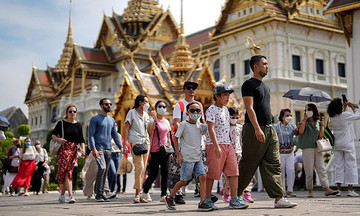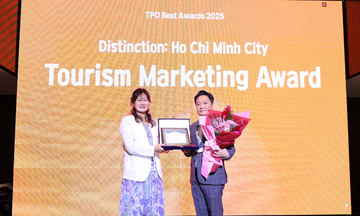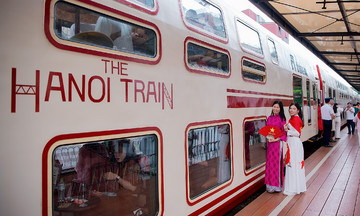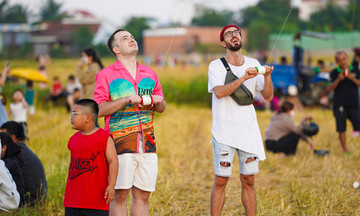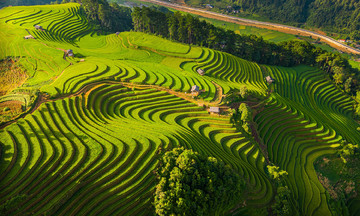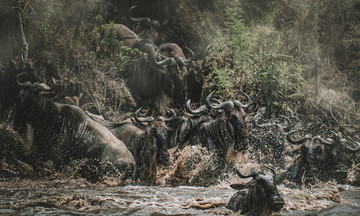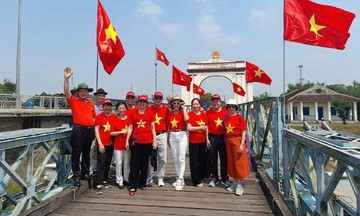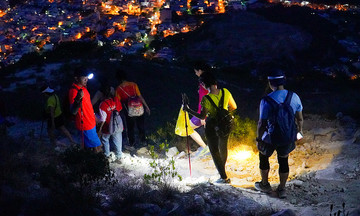Australian tourist Grant Wilson first visited Vietnam in 1999 and immediately fell in love. He taught English from 2000 to 2006 and has since returned several times a year.
The biggest draw for foreign tourists back then was experiencing Vietnam's untouched beauty. Wilson remembers few Asian tourists then, but now encounters Chinese, Korean, and Japanese visitors everywhere.
While Vietnam possessed an authentic charm, services were lacking. Da Nang's city center was chaotic, beaches were dirty, and Hoi An offered little to tourists, even domestic ones.
Wilson recalls foreign tourists often being overcharged, and theft was common. Despite his love for Vietnam, he admits early tourists were often seen as "rich and easy targets."
"Vietnam's reputation is now different. Many foreigners see it as a safe, friendly, and welcoming destination," Wilson says.
Mark Bowyer, founder of Old Compass Travel, has witnessed this transformation firsthand. Over 30 years ago, he led some of the first foreign tourists through Vietnam on the Reunification Express train.
According to Bowyer, everyone who visited Vietnam in the early 1990s was struck by the people's positive energy and determination. Vietnam has changed dramatically in three decades, but the people, their optimism, and hospitality remain tourism's greatest strengths.
In 2025, Bowyer finds everything incredibly different, from food and beaches to shopping, adventures, and even the world-renowned coffee.
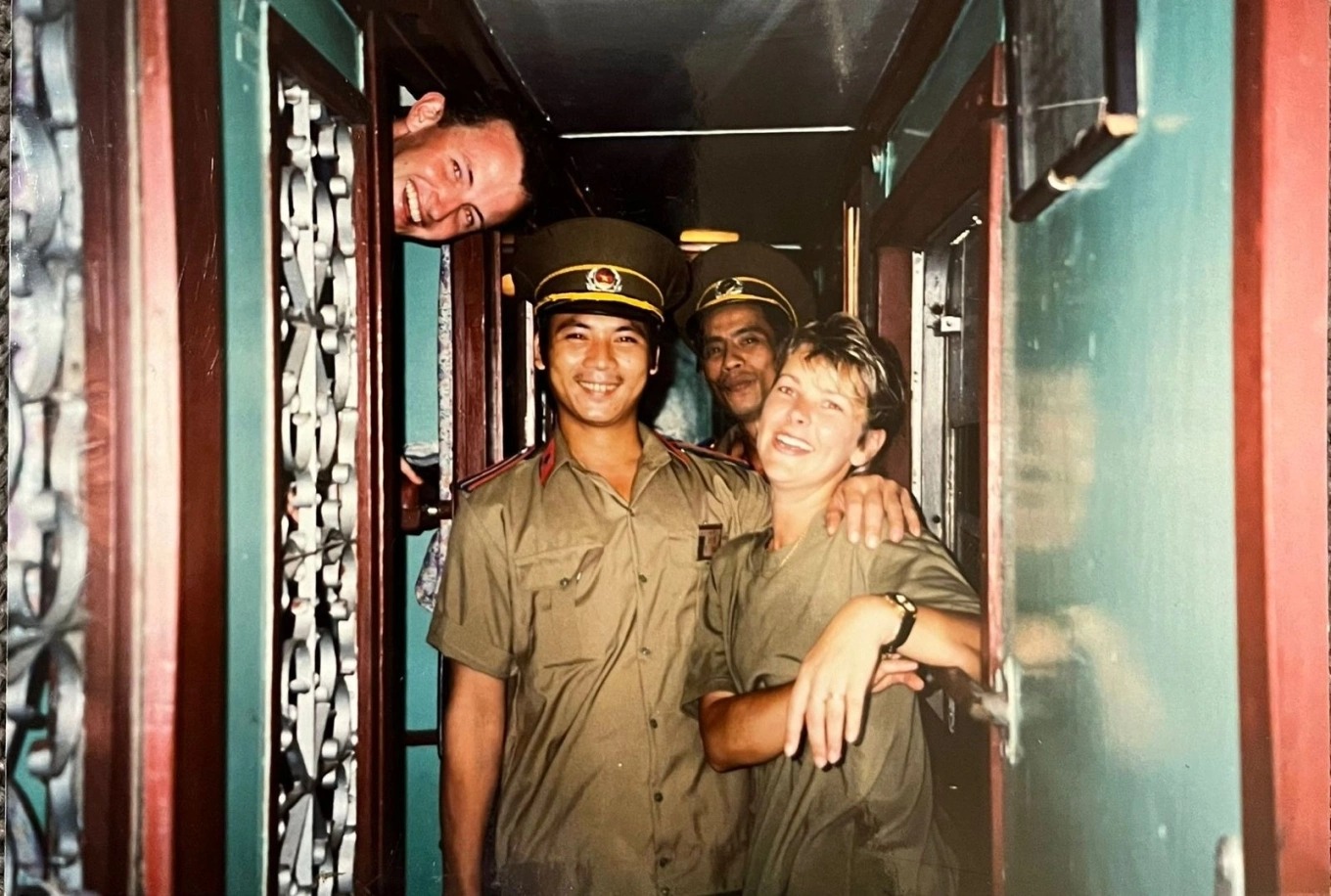 |
Mark (far left) on the Reunification Express in 1993. Photo: Rusty Compass |
Mark (far left) on the Reunification Express in 1993. Photo: Rusty Compass
"Vietnam tourism has developed remarkably," says Dieter Buchner, founder of Vietnam Detox, which offers high-end detox retreats. He has witnessed the transformation, especially in wellness tourism.
Buchner arrived in Vietnam in 1/2015 as Director of Education and Wellness at Fusion Resorts in Hoi An. Wellness tourism then faced challenges. Compared to Thailand, Indonesia, the Philippines, or Malaysia, Vietnam lacked professional spa training and environmental awareness.
In 2015, Buchner says, Thailand was experiencing a revival of traditional Thai medicine and herbal products. Vietnam lacked a traditional herbal skincare industry, and few international visitors knew of its 5,100 medicinal plants.
Buchner recalls massage and wellness services in Vietnam around 2015 faced quality issues beyond basic techniques. A persistent problem was the lack of ongoing training for staff.
He cites a massage center run by visually impaired people where staff said they were trained 13 years prior with no further development. This was common in commercial and even hotel spas.
Almost a decade later, he sees significant evolution in wellness tourism. The market grows at an average annual rate of 23%, with spending 51% higher than average international tourists. Most international hotel brands are now present, raising service standards and benefiting staff, customers, owners, and local communities.
Two sides of development
However, this transformation has downsides. Alex Sheal, founder of Vietnam In Focus, started tours of Hanoi's train street in 2013 when it was just old houses along the railway. People cooked, did laundry, bathed children, and read newspapers beside the tracks. Foreigners like Sheal were a novelty.
Sheal remains in Vietnam and has witnessed the street's dramatic change. Despite being legally closed, it remains a popular Hanoi attraction. Brightly lit cafes with eye-catching decor replaced the old houses. Locals are now accustomed to foreigners and readily offer drinks and views of passing trains.
Over 10 years ago, people simply leaned back as the train approached. The scene was "so Hanoi" that no one imagined it would become a tourist attraction.
"The idea was crazy, but look at it now," Sheal says. He no longer runs tours there, wanting tourists to experience more local things. The train street's development exceeded his expectations, and he believes some things are better left untouched.
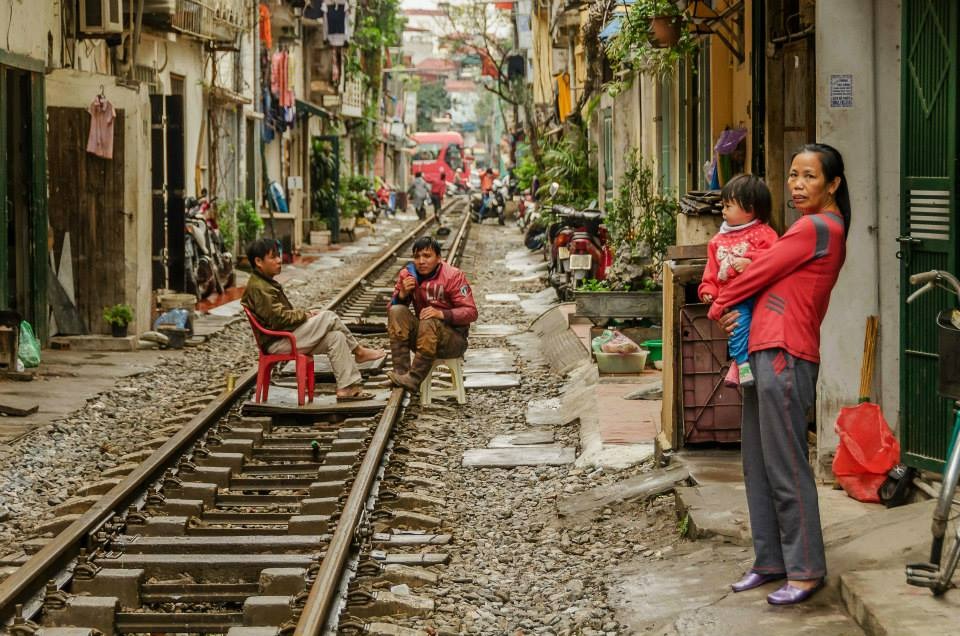 |
Train street over 10 years ago. Photo: Vietnam In Focus |
Train street over 10 years ago. Photo: Vietnam In Focus
Sheal recently took two trips: one to Dien Bien and a family holiday to Ha Long. Dien Bien felt untouched by tourism, reminding him of Ha Giang 18 years ago. It offered pristine beauty, rough roads, basic accommodation, and welcoming smiles. It was a cultural adventure.
Ha Long was different, surprising him with its rapid development since his last visit 10 years ago. Large resorts, villas, and a clean city beach offered modern amenities and good service, suitable for families but somewhat soulless.
These experiences, Sheal says, represent two extremes easily found across Vietnam. Development improves living standards, and domestic tourists often prefer modern infrastructure with large resorts, amusement parks, and cruise ships.
Most global tourists do too, which is why this model exists in most countries. However, local character, people, and culture can be destroyed by unsustainable development. Sheal believes better control is needed in Vietnam's rapid tourism growth.
"What will they do when there's nothing left to explore? I think they'll go elsewhere," he says. He suggests more restricted areas like Son Doong, even limiting tourist activities, like the waiting list to kayak through the Grand Canyon. Places like Dien Bien and Lai Chau deserve such protection, benefiting local communities.
Robyn Nichols, an Australian tourist who has revisited Vietnam multiple times over the past seven years, shares similar sentiments. She loves Vietnam for its low cost of living and unique cuisine. Last year, she visited Phu Quoc and saw dramatic changes in tourist areas on both sides of the island.
"It's strange for a foreigner to drive through a 'European village' in Vietnam," she says, noting Vietnam still retains traditional culture in many places, unlike overdeveloped Bali or Phuket.
Meanwhile, Wilson still loves Hoi An but avoids staying in the ancient town center due to tourist crowds. He prefers quieter areas like An Bang and Cam Thanh.
People and culture are the greatest assets
According to Bowyer, concerns about overdevelopment are growing. The focus on large hotels, resorts, and mass tourism has harmed the country's natural beauty and the simple joy of slow travel in small, local hotels.
He believes Vietnam needs a tourism reorientation, prioritizing nature, fresh air, clean water, and traditional values.
"People have been Vietnam tourism's greatest asset for over 30 years," he says. Their hospitality remains a special attraction, surprising him compared to other places where similar history might create resentment.
Bowyer says Vietnam's return visitor rate isn't impressive, but Old Compass Travel has encountered many who genuinely love and return. He continues to offer the "Vietnam By The Book" tour, which has existed and evolved since 2006.
"We're delving into historical stories in places like Dien Bien Phu, Hanoi, and Hue, alongside modern travel experiences," he says, noting "the contrast between past and present feels very vivid in Vietnam."
Bowyer adds that neither current nor early visitors can expect everything to remain untouched. Besides responsible destination management, tourists can choose their own ways to explore Vietnam.
Christian Rodriguez, a Uruguayan photographer, is known for his "Circus" series shot in Hanoi and Ho Chi Minh City from 2009 to 2012. During those three years, he lived like a local, eating, sleeping, and even attending circus performers' weddings. He remains proud of that unique experience.
Three years after completing the series, Rodriguez hasn't returned to Vietnam. Sometimes, missing Vietnam, he seeks Vietnamese pho in Uruguay to relive the taste.
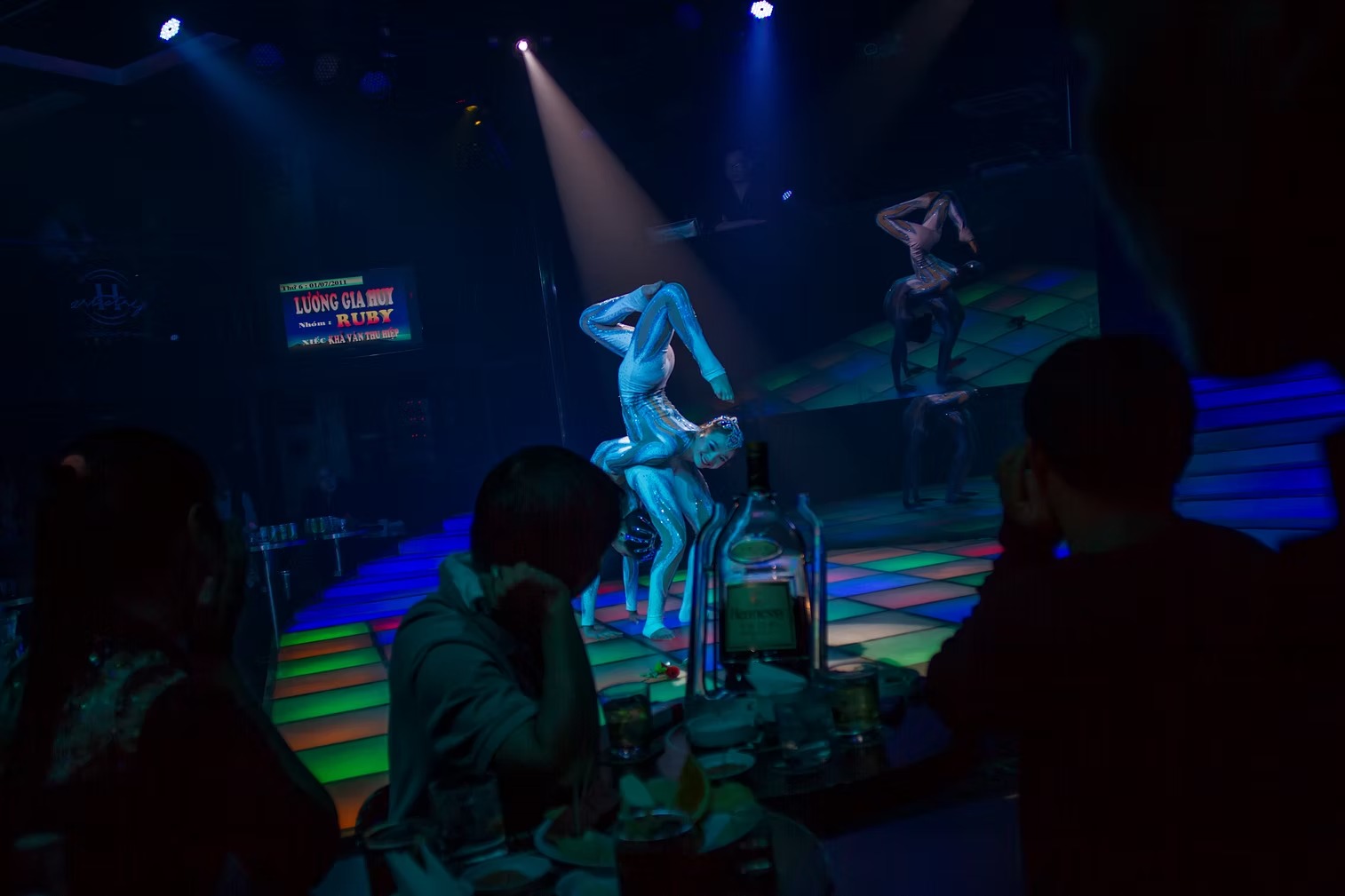 |
A circus performance in Vietnam in 2010. Photo: Christian Rodriguez |
A circus performance in Vietnam in 2010. Photo: Christian Rodriguez
Rodriguez wants to return soon, as Vietnam remains a favorite. He knows modernization has reshaped parts of the country but believes deeper values and authentic aspects remain. He's curious to see the changes and how Vietnam has progressed.
"I want to see friends in Hanoi and Ho Chi Minh City, and the circus troupe, to see how they've grown and changed with the country," he says. He won't rely on guidebooks or online resources, instead seeking old friends' advice, believing that's the best way to discover Vietnam – through locals' eyes and warmth.
According to Rodriguez, Vietnam has seen impressive changes in the past 10 years. He believes corners of Hanoi, Ho Chi Minh City, and other areas retain their past beauty, waiting for tourists willing to explore.
"Connecting with local people is always the key to a fulfilling trip," he shares.
Tu Nguyen



